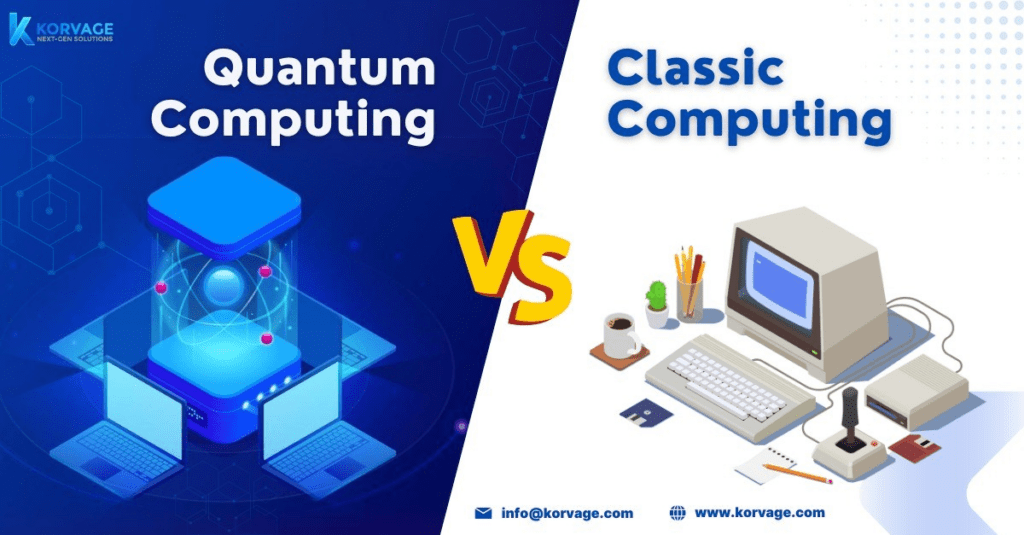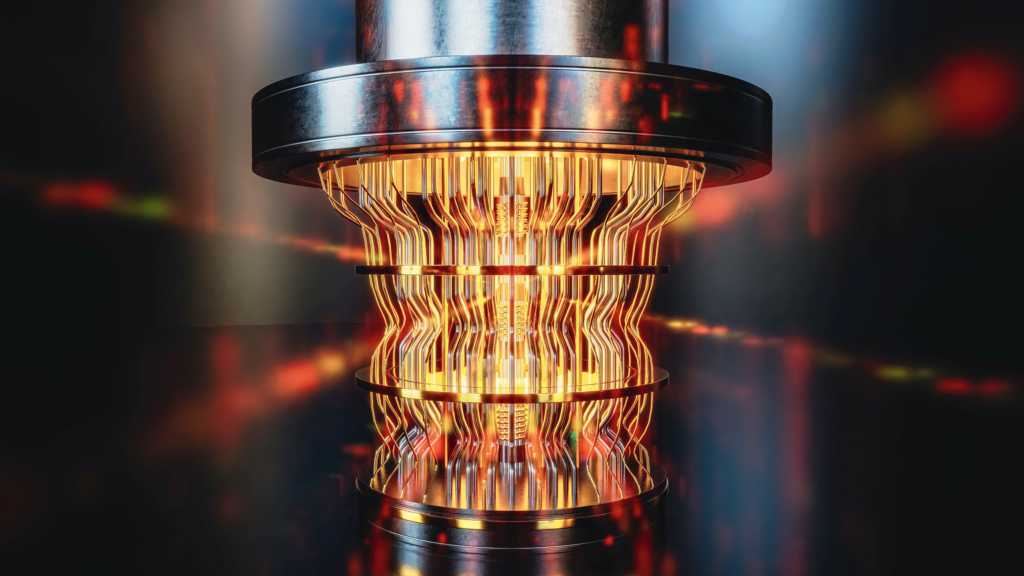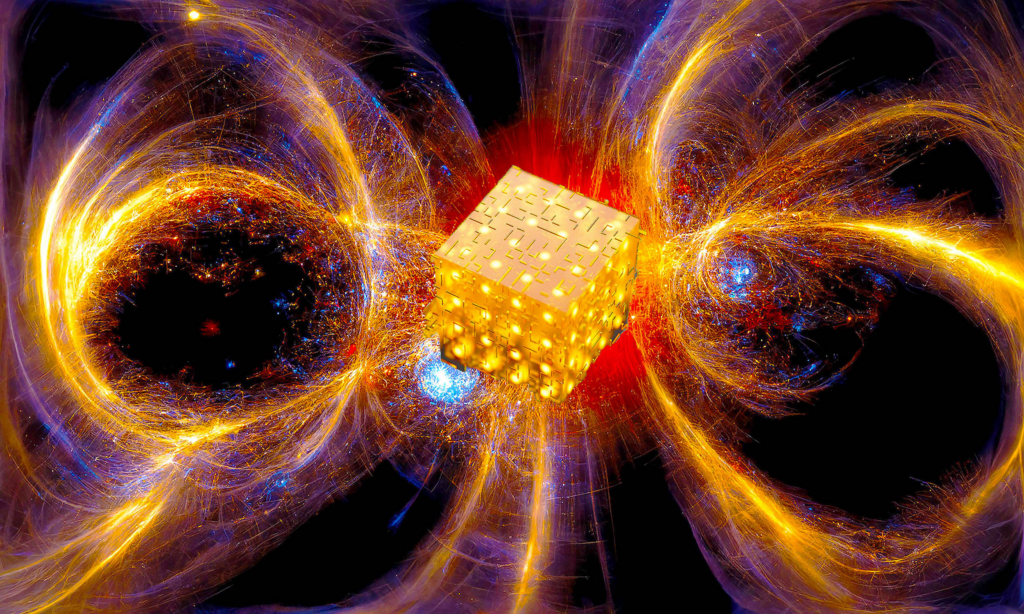Understanding Quantum Computing: What You Need to Know.
Quantum computing is often hailed as the next frontier in technology, promising to revolutionize everything from cryptography to artificial intelligence. But how does it compare to traditional computing? And can we expect quantum computers to replace the systems we use today? In this blog, we will answer these questions and explore the fundamental differences between quantum computers, classical computers, and supercomputers, as well as dive into their potential advantages, costs, and future applications.
What is the Difference Between Quantum Computers and Traditional Computers?

Traditional computers, also known as classical computers, use bits as the basic unit of information. A bit is binary, meaning it can either be 0 or 1. These bits are processed sequentially and form the foundation of all classical computing tasks. Whether you’re browsing the web, editing a document, or running a simulation, everything on your device ultimately boils down to a series of bits being processed by the computer’s processor.
In contrast, quantum computers use quantum bits, or qubits. Unlike classical bits, qubits can exist in multiple states at once due to a property known as superposition. This means a qubit can be both 0 and 1 at the same time, significantly expanding the computational power of quantum machines.
Quantum computers also take advantage of another key principle, entanglement, which allows qubits to be linked together in such a way that the state of one qubit can depend on the state of another, even if they are far apart. This interdependence can enable quantum computers to perform complex calculations much faster than traditional computers.
- Latest CPU’s Available Now – Amazon.com
- Get a NEW GPU Best Performance – AMAZON.com
- Upgrade RAM Here today – AMAZON.com
- Prebuilt PC Options – AMAZON.com
What is the Difference Between Quantum and Supercomputers?

Supercomputers are the most powerful classical computers available today. They are designed to handle incredibly large, complex computations, often in fields like climate modeling, drug discovery, and simulations of physical phenomena.
Supercomputers are made up of thousands or even millions of classical processors that work in parallel, processing vast amounts of data simultaneously to solve problems that are too large for typical computers.
Quantum computers, on the other hand, use quantum-mechanical phenomena like superposition and entanglement to process information. While supercomputers are incredibly powerful, they still rely on classical computing principles.
Quantum computers, however, exploit the unique properties of quantum mechanics, which allows them to solve certain problems much more efficiently than supercomputers.
Is a Supercomputer Faster Than a Quantum Computer?

While supercomputers are extremely fast for many types of computations, they are not necessarily faster than quantum computers in all scenarios. In fact, for certain types of problems, quantum computers could be exponentially faster than even the most powerful supercomputers.
For example, quantum computers are expected to excel in areas like factorizing’s large numbers and simulating quantum systems—tasks that are extremely time-consuming for classical computers. In comparison, a supercomputer might require millions of years to solve these problems, while a quantum computer could potentially solve them in a fraction of the time.
However, it’s important to note that quantum computers are still in the early stages of development. They are not yet capable of outperforming supercomputers across a wide range of tasks. Instead, quantum computers are expected to complement classical systems, solving specific problems that classical computers cannot handle efficiently.
How Much is the Difference in Speed by Comparison?

The speed difference between supercomputers and quantum computers depends heavily on the type of task being performed. For certain problems, the difference in speed could be exponential—meaning that a quantum computer could solve the problem in a time that scales much more efficiently than a supercomputer.
For instance, in the case of Shor’s algorithm, which is used for factoring large numbers (a key component of modern encryption), a quantum computer could theoretically solve the problem in polynomial time, whereas a classical computer would take exponentially longer as the numbers get larger. The exact difference in speed varies, but quantum algorithms have the potential to dramatically outperform classical ones for specific tasks, potentially reducing processing times from millions of years to mere seconds or minutes.
What Can Quantum Computers Do That Classical Computers Cannot?
Quantum computers hold significant advantages when it comes to solving certain types of problems that are either impossible or impractical for classical computers. These include:
- Cryptography: Quantum computers can break widely used encryption schemes, such as RSA, by efficiently factoring large numbers, a task that would take classical computers an impractical amount of time.
- Quantum Simulation: Quantum computers are ideal for simulating quantum systems, which classical computers struggle with. This could lead to breakthroughs in materials science, drug discovery, and fundamental physics by allowing researchers to simulate molecular interactions and quantum phenomena directly.
- Optimization Problems: Quantum algorithms can help solve complex optimization problems faster, such as optimizing supply chains, traffic systems, or financial portfolios. These problems often involve finding the best solution from a vast number of possibilities, which can be time-consuming for classical systems.
- Artificial Intelligence: Quantum computers could enhance AI algorithms by providing better ways to process large datasets and improve machine learning models. Quantum machine learning could lead to faster, more accurate predictions.
How Do Quantum Computers Store Information Differently Than Normal Computers?

In traditional computers, information is stored in bits, which are binary and can exist in one of two states: 0 or 1. This is relatively simple and has served classical computing well for decades.
Quantum computers, however, use qubits to store information. Qubits are not restricted to just 0 or 1; instead, they can exist in a superposition of both states simultaneously. This means a quantum computer can store and process much more information at once compared to a classical computer.
When multiple qubits are entangled, the amount of information that can be stored increases exponentially, offering vast computational power.
Advantages of Quantum Computing Over Classical Computing
- Speed: Quantum computers can perform certain types of calculations far faster than classical computers.
- Parallel Processing: Due to superposition and entanglement, quantum computers can process multiple possibilities at once, unlike classical computers which must process each possibility sequentially.
- Efficiency: For certain tasks, quantum computers can solve problems that would take classical computers an impractical amount of time, potentially revolutionizing fields like cryptography, material science, and AI.
- Complex Problem Solving: Quantum computers have the potential to tackle complex optimization, simulation, and modeling problems that are intractable for classical machines.
How Much Do Quantum Computers Cost?

Quantum computers are still in the experimental stage, so their costs are extremely high. Companies and research institutions are currently developing quantum computing systems, but these machines are not yet commercially available for general use.
The costs associated with quantum computers are mainly due to the need for highly specialized hardware, such as superconducting circuits, quantum processors, and complex cooling systems to maintain the delicate quantum states.
The price tag for a quantum computer can range from several million dollars to tens of millions of dollars depending on the complexity and size of the system.
Can We Buy Quantum Computers? Can I Buy a Quantum Computer Today?
Currently, it is not possible for individuals or businesses to purchase quantum computers for general use. Quantum computers are still in the prototype stage, and the technology is being refined by a handful of companies and research institutions. However, there are quantum cloud services available from companies like IBM, Google, and Microsoft, where users can access quantum processors remotely via the cloud and run quantum algorithms on these systems. This allows businesses and researchers to experiment with quantum computing without having to own the hardware.

Can You Play Games or Use VR with a Quantum Computer Yet?
As of today, quantum computers are not suitable for gaming or virtual reality applications. Quantum computing is primarily geared towards specialized computational tasks like cryptography, simulation, and optimization. While quantum computing holds promise for advancing fields like AI and machine learning, which could eventually enhance VR and gaming experiences, current quantum machines are not designed for general-purpose tasks like running games or VR environments.
Is It Possible Quantum Computers Will Replace Current Computing Technology in the Near or Further Future?
While quantum computing has the potential to revolutionize certain fields, it is unlikely to replace classical computing technology in the near future. Classical computers will continue to be the workhorses for everyday tasks, and quantum computers will likely complement them by solving problems that classical systems cannot efficiently handle. In the future, we may see hybrid systems that combine the strengths of both quantum and classical computing to handle a wide range of tasks.
In the far future, quantum computing may become more ubiquitous, but we are still far from reaching that point. There are many technical challenges that need to be overcome, including error rates, qubit stability, and scaling up the number of qubits to make quantum computers practical for a broader range of applications.
- Joystick / HOTAS – AMAZON.com
- Rudder Pedals – AMAZON.com
- Throttle Quadrant – AMAZON.com
- Gaming Chair – AMAZON.com
- VR Headset – AMAZON.com

Conclusion
Quantum computing represents an exciting and rapidly advancing field with the potential to revolutionize industries by solving problems that classical computers cannot handle. While we’re still in the early stages of development, the future holds enormous promise for quantum technologies in fields like cryptography, AI, and scientific simulation.
However, for now, traditional computers and supercomputers remain the dominant technologies for everyday tasks, with quantum computers acting as a complementary technology for specialized applications. As the technology matures, we may one day see quantum computers integrated into the computing landscape in ways we cannot yet fully imagine.

Author
Brendon McAliece (Aka Gunnie) is a military veteran with 23 years working on Jet Fighters, their weapons systems and ejection seat/module systems as well as munitions and R&D. Involved with flight simulation since the 1980s, he has flown all the major flight simulators over the years.
He is an Australian expat who has lived in Malaysia, UK, Saudi Arabia and more recently Thailand. He is a multi-lingual blogger who loves to share his life experiences here on LetsFlyVFR.com and DreamingGuitar.com, with his lifestyle and Travel experiences Blog plus his Dreaming Coffee website.
Learn More @ DreamingGuitar.com – DreamingCoffee.com – LetsFlyVFR.com
( HOME – BLOG – SHOP – ABOUT )
As an Amazon affiliate I may benefit from qualifying sales.









